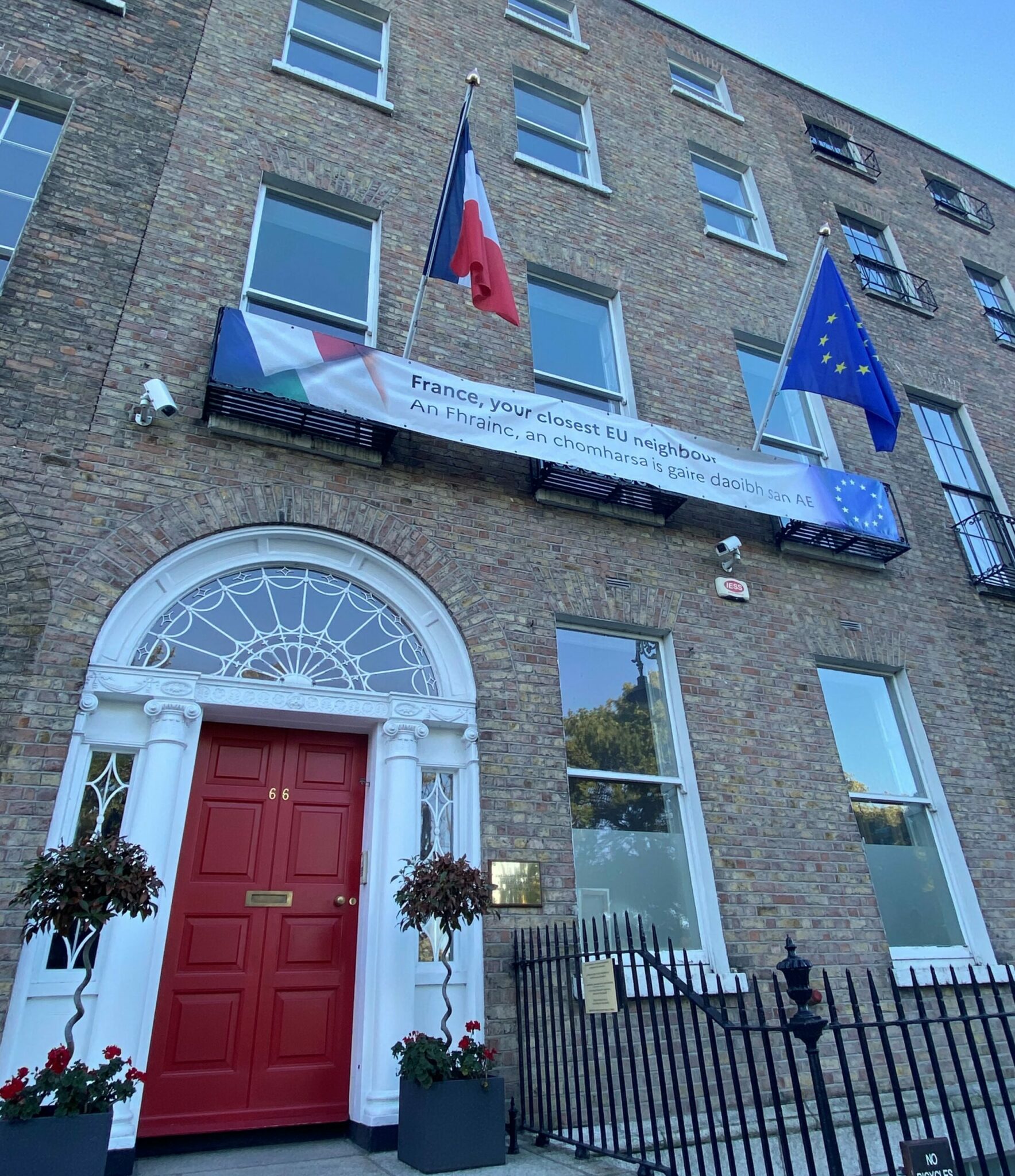Ian Cooper and Christy Ann Petit
Merrion Square in central Dublin is well known as one of the poshest addresses in all of Ireland. Visitors to the north side of the square are greeted by a giant banner hanging over number 66, the address of the French Embassy. It reads, “France, your closest EU neighbour.” For good measure the phrase is also translated into Irish: “An Fhrainc, an chomharsa is gaire daoibh san AE.”
This banner was erected in the wake of the United Kingdom’s exit from the European Union (EU). Brexit changed Ireland’s position in the political geography of Western Europe: whereas it created tensions with the UK, it drew Ireland closer to the rest of the EU.
Last Monday 17 October, we walked under that banner to meet with a visiting delegation of French senators, hosted by French Ambassador H.E. Vincent Guérend. These senators were members of the parliamentary committees for European affairs and foreign affairs, who are also part of the monitoring group on the new Euro-British relationship, established within the French Senate after the Brexit referendum.
The visitors wanted in particular to discuss the issues raised by Brexit and its consequences for the island of Ireland. The conversation touched upon the state of EU-UK relations, the situation with the Northern Ireland Protocol, the UK Internal Market Act and the divergence of the UK from the regulatory framework of the EU. The visitors were extremely engaged and knowledgeable about the issues, including the specific issues concerning Northern Ireland, evincing a deep expertise on these matters.
As it happened, this discussion took place at the same time that a political crisis was unfolding in London, that had already provoked the sacking of the UK’s chancellor, and which was quickly followed by the Home Secretary and, finally, the former Prime Minister Liz Truss herself, now replaced by Prime Minister Rishi Sunak (at the time of publishing this blogpost).
It is ironic that while the UK government was engulfed in this crisis, the mood seemed to be improving in the EU-UK negotiations over the implementation of the Northern Ireland Protocol. At the same time, the crisis left uncertain the fate of the devolved government in Northern Ireland, which may be required to hold fresh assembly elections unless a functioning executive is put in place before 28 October.
Even so, the meeting of the French senators also underscored the fact that France really is Ireland’s closest EU neighbour in that it is increasingly opening its gateway to the EU Single Market. Given that Brexit friction has made it more difficult for Ireland to use Great Britain as a “landbridge” to reach the EU, much trade has been diverted to travel directly to French ports.

Time will tell whether there will be an improvement in the relations of the EU with the UK, now under the leadership of PM Sunak. What is certain is that forthcoming events will be monitored closely by the French senators and the researchers at the DCU Brexit Institute.
The views expressed in this blog reflect the position of the author and not necessarily that of the Brexit Institute Blog.
Photo Credits: Christy Ann Petit



